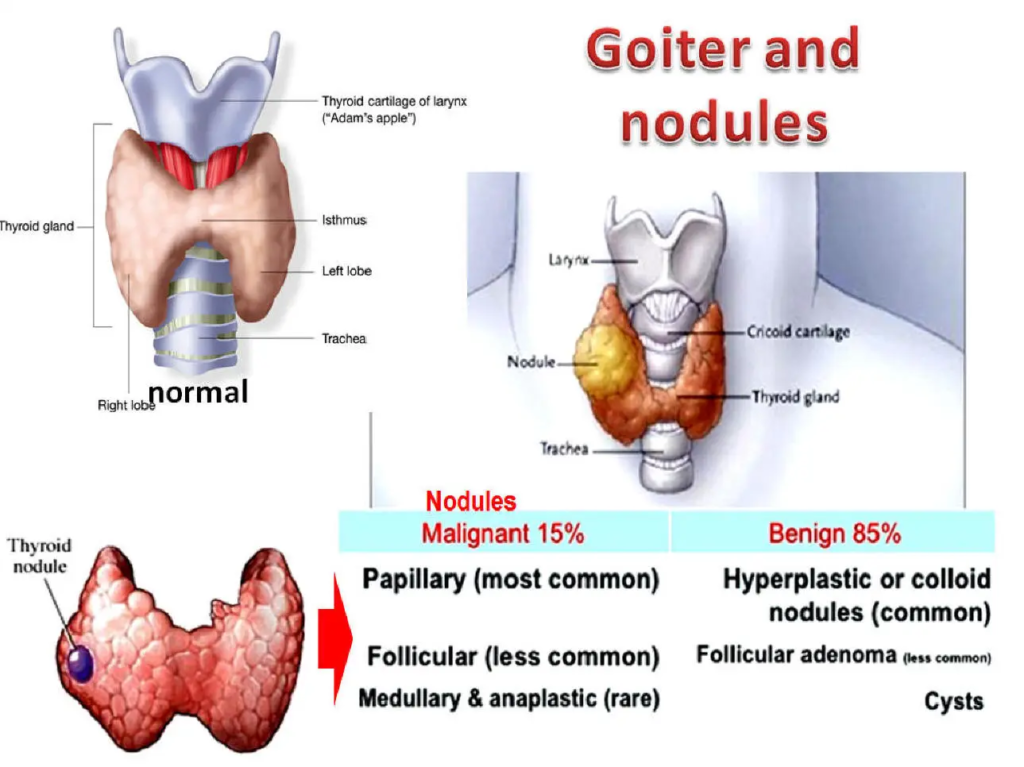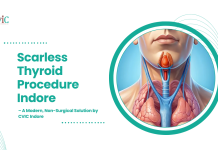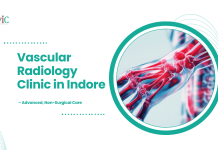The thyroid gland, a butterfly-shaped organ located at the base of your neck, plays a vital role in regulating your metabolism, energy levels, and overall well-being. However, various conditions can affect the thyroid, leading to the formation of goiters or thyroid nodules. Understanding the differences between these conditions is crucial for accurate diagnosis and effective treatment. Renowned thyroid specialists Dr. Shailesh Gupta, Dr. Alok Kumar Udiya, and Dr. Nishant Bhargava from CVIC Indore provide insights into the key differences between goiters and thyroid nodules, their causes, characteristics, and how they can impact your health.
What Are Goiters?
A goiter refers to the abnormal enlargement of the thyroid gland. Unlike thyroid nodules, which are distinct lumps or masses within the gland, goiters involve an overall increase in the gland’s size.
Causes of Goiters
- Iodine Deficiency: The most common cause globally, especially in areas with iodine-deficient soil.
- Hashimoto’s Thyroiditis: An autoimmune condition leading to hypothyroidism and gland enlargement.
- Graves’ Disease: An autoimmune disorder causing hyperthyroidism and diffuse gland enlargement.
- Thyroid Cancer: Rarely, malignant tumors can cause goiter formation.
- Hormonal Changes: Especially during puberty, pregnancy, or menopause.
Also Read: Top 10 Early Symptoms of Kidney Disease You Shouldn’t Ignore

Symptoms of Goiters
- Visible swelling at the base of the neck.
- Difficulty swallowing or breathing.
- Coughing or hoarseness.
- Feeling of tightness in the throat.
Diagnosis of Goiters
- Physical examination.
- Blood tests to check thyroid hormone levels.
- Ultrasound imaging.
- Fine-needle aspiration biopsy, if needed.
What Are Thyroid Nodules?
Thyroid nodules are solid or fluid-filled lumps that form within the thyroid gland. Unlike goiters, nodules are localized growths rather than a generalized enlargement.
Causes of Thyroid Nodules
- Iodine Deficiency: Similar to goiters, lack of iodine can cause nodules.
- Thyroiditis: Inflammation of the thyroid can lead to nodule formation.
- Benign Tumors: Non-cancerous growths such as adenomas.
- Thyroid Cancer: In rare cases, nodules can be malignant.
- Cysts: Fluid-filled sacs that may form within the gland.
Also Read: How to Stop Gangrene from Spreading: 7 Proven Tips to Protect Your Health

Symptoms of Thyroid Nodules
- Typically asymptomatic.
- Pain or discomfort if large or pressing against nearby structures.
- Hoarseness or difficulty swallowing.
- Noticeable lump in the neck.
Diagnosis of Thyroid Nodules
- Ultrasound imaging.
- Blood tests for hormone analysis.
- Fine-needle aspiration biopsy to determine malignancy.
Goiters vs Thyroid Nodules: Key Differences
| Aspect | Goiters | Thyroid Nodules |
|---|---|---|
| Definition | Generalized enlargement of the thyroid gland. | Discrete lumps or masses within the thyroid. |
| Cause | Iodine deficiency, autoimmune disorders, hormonal changes. | Iodine deficiency, inflammation, benign tumors, cysts, or cancer. |
| Symptoms | Neck swelling, difficulty swallowing, hoarseness. | Often asymptomatic, but may cause discomfort if large. |
| Diagnosis | Physical exam, ultrasound, blood tests. | Ultrasound, blood tests, biopsy. |
| Treatment | Iodine supplements, medication, surgery. | Observation, medication, biopsy, or surgery if malignant. |
Treatment Options
The treatment for goiters and thyroid nodules varies based on their underlying causes and whether they are benign or malignant. Dr. Shailesh Gupta, Dr. Alok Kumar Udiya, and Dr. Nishant Bhargava at CVIC Indore emphasize the importance of accurate diagnosis through ultrasound, blood tests, and biopsy when necessary.
Treating Goiters
- Iodine Supplements: Effective if caused by iodine deficiency.
- Medications: Hormone replacement therapy or antithyroid medications.
- Surgery: For large goiters causing breathing or swallowing difficulties.
Also Read: 10 Effective Home Remedies for Gangrene Treatment You Can Try Today

Treating Thyroid Nodules
- Observation: For benign nodules that do not cause symptoms.
- Medications: For nodules related to hyperthyroidism.
- Biopsy or Surgery: Required if malignancy is suspected.
When to Consult a Specialist?
It’s essential to consult a specialist if you notice swelling in your neck, difficulty swallowing, or symptoms of hyperthyroidism or hypothyroidism. At CVIC Indore, Dr. Shailesh Gupta, Dr. Alok Kumar Udiya, and Dr. Nishant Bhargava are experienced in diagnosing and treating thyroid conditions, including goiters and thyroid nodules.
Conclusion
Understanding the differences between goiters and thyroid nodules is crucial for proper diagnosis and treatment. While goiters involve overall gland enlargement, thyroid nodules are localized lumps. Both conditions require thorough evaluation by experienced specialists like Dr. Shailesh Gupta, Dr. Alok Kumar Udiya, and Dr. Nishant Bhargava at CVIC Indore.
If you suspect a thyroid condition, don’t hesitate to seek medical attention. Early detection and appropriate treatment can significantly improve your health and well-being.
FAQs
What is the main difference between goiters and thyroid nodules?
Goiters involve an overall enlargement of the thyroid gland, while thyroid nodules are localized lumps within the gland.
Can thyroid nodules turn into cancer?
While most nodules are benign, some can be malignant, necessitating a biopsy for accurate diagnosis.
How are goiters diagnosed?
Diagnosis typically involves physical examination, blood tests, ultrasound imaging, and sometimes a biopsy.
What causes thyroid nodules?
Nodules can be caused by iodine deficiency, inflammation, cysts, benign tumors, or, rarely, cancer.
Is surgery necessary for goiters?
Surgery is recommended if the goiter causes difficulty in breathing or swallowing or if cancer is suspected.
Who should I consult for thyroid issues?
Experts like Dr. Shailesh Gupta, Dr. Alok Kumar Udiya, and Dr. Nishant Bhargava at CVIC Indore specialize in thyroid conditions.




